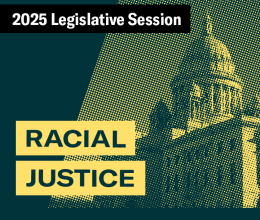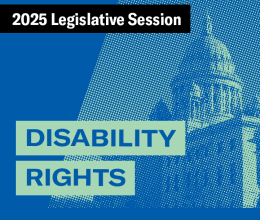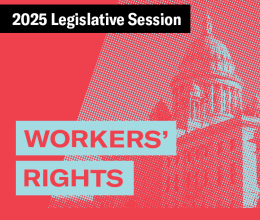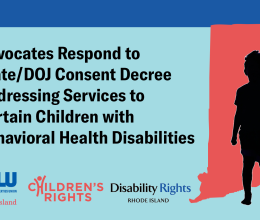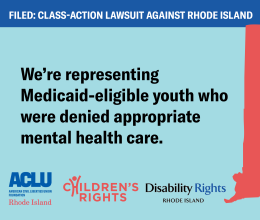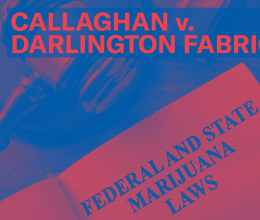
The ACLU of Rhode Island today announced the settlement of an important lawsuit dealing with the rights of medical marijuana patients in employment. The settlement comes four years after R.I. Superior Court Justice Richard Licht ruled in the case that a Westerly fabrics company discriminated against Christine Callaghan when consideration of a paid internship was rescinded because of her participation in the state’s medical marijuana program and her acknowledgment that she therefore would not be able to pass a required pre-employment drug screen. In its decision, the court held that the state’s medical marijuana law, which bars discrimination in employment against “cardholders,” applies to job applicants like Callaghan. A trial on damages was held in abeyance while the parties worked to settle the lawsuit.
The lawsuit was filed in 2014 by ACLU volunteer attorney Carly Beauvais Iafrate on behalf of Callaghan, a graduate of the Savannah College of Art and Design who at the time was studying textiles and working towards a masters’ degree in that field at URI. She had participated in the medical marijuana program for almost two years to deal with frequent, debilitating migraine headaches when she applied for a paid internship at Darlington Fabrics Company. During the interview process, Callaghan disclosed that she held a medical marijuana card and was using the medication, while the company maintains that they were not aware of the specific nature of her disability. When Callaghan advised the company that she would be unable to pass a drug test due to the use of medical marijuana, the company said they could not continue with the interview, and they did not hire her.
Under the settlement agreement, the company has agreed to pay Callaghan $3,500 in back pay and compensatory damages, and to pay attorneys’ fees. The company has also agreed to amend its drug use policy to consider applicants who are authorized medical marijuana cardholders.
The lawsuit had argued that “a potential employer’s failure to hire a medical marijuana patient because of, or related to, his or her status as a medical marijuana user and/or cardholder” constitutes disability discrimination in violation of the RI Civil Rights Act, and also violated the medical marijuana law, which protects cardholders from discrimination in employment. In his 2017 ruling, Judge Licht agreed. The judge acknowledged that the company did not have to accommodate any use of marijuana in the workplace, but that was not what this case was about.
Plaintiff Callaghan said today: “I would like to thank the ACLU and Carly for representing me in this matter, as without their aid I would have had no recourse. I am also thankful to Judge Licht for upholding my right to take medicine without fear of losing or being denied a job and am hopeful that finally reaching resolution of this matter will be encouraging to other medical marijuana patients.”
ACLU attorney Iafrate added: “Without this lawsuit, the rights of cardholders would have remained unclear. I am appreciative of Christine’s willingness to make her experience public and to challenge the employer’s decision. From here forward, I hope employers will reconsider blanket exclusions for people who may be suffering from medical conditions, but who are still entirely capable of being productive members of the workforce.
ACLU of RI executive director Steven Brown added: “I am hopeful that this settlement will put other employers on notice that discrimination against medical marijuana patients is both inappropriate and unlawful.” The ACLU has been a strong supporter of the medical marijuana law.
